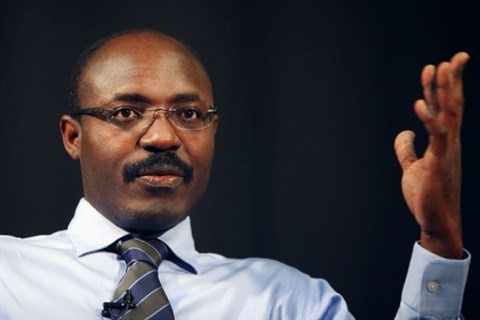Angola journalist Rafael Marques convicted of defamation
A judge in Luanda yesterday issued the sentenced after finding Marques guilty of defaming seven Angolan generals in his book "Blood Diamonds: Torture and Corruption in Angola", which received wide international attention and numerous awards for exposing cases of torture and killings in the diamond fields of Angola's Lundas region.
The sentence - which Marques could still be forced to serve if he is found guilty of any crime during the next two years - came despite an out-of-court settlement reached last week that led the generals to withdraw their complaints for defamation; a deal Marques has since described as a "double-cross".
IPI Director of Advocacy and Communications Steven M. Ellis sharply criticised the sentence.

"This outcome presents a glaring example of the potential for abuse inherent in criminal defamation laws and the need for defamation to be treated solely as a civil offence," he said. "The decision to proceed even after those allegedly harmed had withdrawn their complaints - and after Mr. Marques entered into an agreement that hindered him from presenting a full defence - is a cynical abuse of law. It allows those accused of grave crimes to avoid answering for their actions and places a sword of Damocles above Mr. Marques' head, sending a clear message to journalists of the cost of seeking to expose wrongdoing in Angola."
Marques' book's revelations, which were followed by a legal complaint he filed against the generals accusing them of crimes against humanity, attracted considerable international attention. The generals, including one of Angolan President José Eduardo dos Santos' closest allies, co-own the private security company accused of having carried out many of the abuses detailed in Marques' book.
In response to Marques' complaint, the generals filed a series of libel lawsuits against him. An initial nine defamation charges ultimately rose to a total of 24 when legal proceedings began in March. The generals also initiated criminal and civil libel proceedings against Marques in Portugal; criminal charges there were dismissed in 2013.
A trial that could have resulted in a prison sentence of up to nine years, as well as a potential fine of nearly €1.1m, appeared to have ended last week, relieving international observers. In a private meeting with Marques, the generals agreed to withdraw their complaints. In return, Marques was asked to acknowledge that the generals had been unaware of the crimes, thus discharging them from any responsibility.
"I was asked to acknowledge that the generals had not been informed by their companies' managers of my diligence to seek their reaction", he told IPI.
The move appeared to spare Marques a heavy fine and a potential prison sentence. It also allowed the generals to avoid testifying at a potentially explosive trial that would have led to further airing of details of cases of human rights abuses.
But in an unexpected turn of events, prosecutors pressed forward with the trial anyway. According to Angolan law, the generals' withdrawal of their criminal defamation complaints did not oblige prosecutors to drop the case.
Speaking to IPI today, Marques said the generals and the prosecutors "double-crossed" him and "made statements on 25 May that are beyond belief", including allegations that he had "fabricated information" and "apologized, and admitted that the book was a pack of falsehoods".
He also complained about the prosecution's allegation that he failed to provide sufficient evidence to the court. According to Marques, several witnesses had come the long way to Luanda in vain, as last week's agreement stipulated that no more witnesses or evidence had to be presented.
"In court the content of the book was never addressed; the facts were never put into question", he insisted. In an interview with IPI, he commented that the only question he had been asked was if he had seen any generals personally committing a crime, something he said he never claimed to have seen in the book.
"What I wrote in the book, and that has been proven and no one contested that, was that the generals owned the companies and as such they have responsibilities for what their staffs do," he explained. He added that this responsibility was even greater than normal "because this private security company was better equipped than the army and the police itself".
Saying that the "generals' need to win was higher than their honour", Marques denounced a number of irregularities in the trial. He told IPI that he was currently trying to appeal to a higher court, but that his lawyer had not been given access to the case file, despite the deadline for an appeal being five days after the pronouncement of the verdict.
Marques' sentence leaves him open to attack and extremely vulnerable in terms of continuing his work of monitoring human rights abuses. He told IPI that leaving Angola was out of the question, but that his work would be "even more challenging", since the suspended sentence was handed to "try to use it to condition my work for two years".
Describing the verdict and the overall procedure of his trial as a "final blow" to Angola's media landscape, Marques shared the opinion there was not much press freedom left in the country.
"This is sending a signal that those in power always win," he said.
Source: allAfrica

AllAfrica is a voice of, by and about Africa - aggregating, producing and distributing 2000 news and information items daily from over 130 African news organisations and our own reporters to an African and global public. We operate from Cape Town, Dakar, Lagos, Monrovia, Nairobi and Washington DC.
Go to: http://allafrica.com/






















